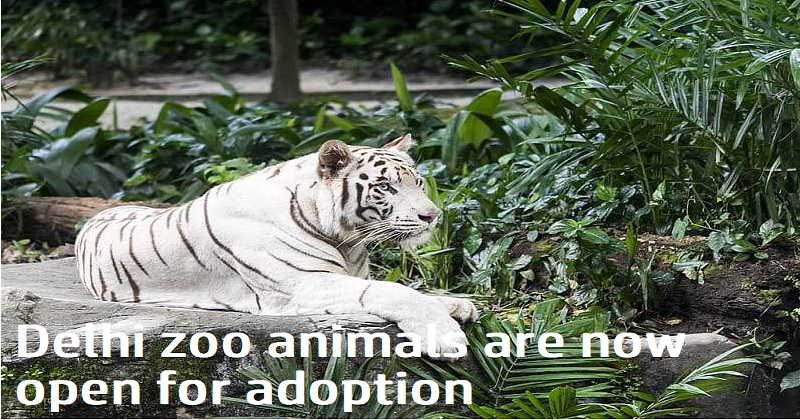
Anyone can sign up for and contribute to the National Zoological Park’s (Delhi Zoo) animal adoption programme, which enables them to support the facility’s animal care. The programme is being launched at the zoo for the first time, according to zoo director Dharam Deo Rai, and is intended to ‘urge people to participate in wildlife protection.’
The adopter’s name is posted on the animal’s enclosure when an animal is adopted by a visitor to the zoo. The adopter will receive a ‘adoption membership card,’ which they can use once per month during operating hours to enter the zoo.
Around 1,100 animals call the zoo home, including 92 different species of mammals, birds, and reptiles. Big cats, birds, snakes, bears, deer, elephants, star tortoises, and striped hyenas are a few species that might be up for adoption. Several zoos around the country, notably the Nandankanan zoo in Odisha, offer adoption programmes similar to this one.
The amount that needs approval and is paid for adoption on a yearly basis varies depending on the species. It might be as little as Rs 700 for birds like budgerigars and as much as Rs 6,00,000 for lions, tigers, rhinos, and elephants. Leopards may potentially be available for adoption for about Rs 3,60,000 a year.
Adoption is probably going to cost roughly Rs 40,000 per year for sambar deer, swamp deer, or the great hornbill. Other adoptions include the Indian wolf ($1,80,000) and the Indian bison ($2,25,000), also known as the gaur.
Adoption agreements for zoo animals would have a one- to two-year duration, states the document made public by the zoo management. It claimed that adoption might be cancelled but that there would be no cost refund.
The document states that the money made from the animal adoption programme may be given back to the zoo on a quarterly basis for the care of its animals and staff.
It said, ‘The contribution would help to improve the overall facilities for the animals now in use, and eventually for their better care and conservation in the zoos.’
The Union Ministry of Environment, Forests, and Climate Change runs the Delhi Zoo.

Post Your Comments